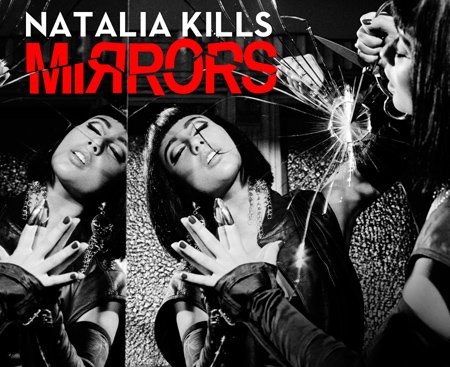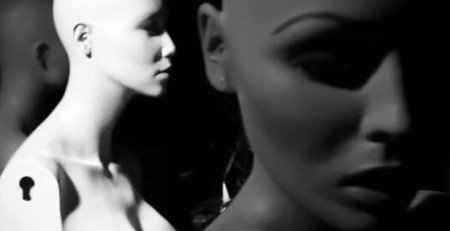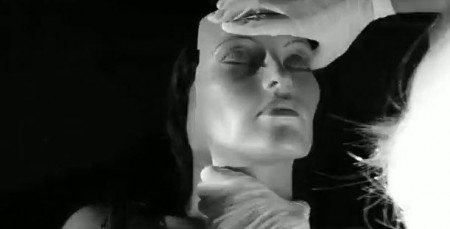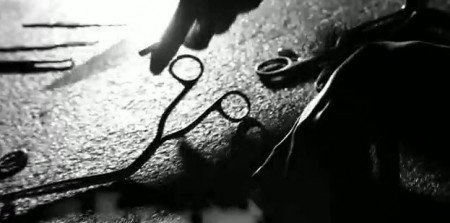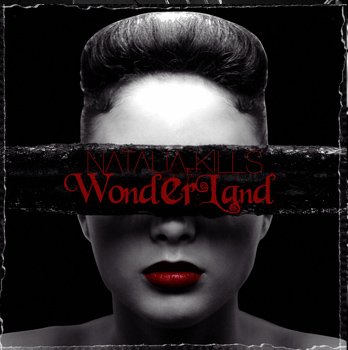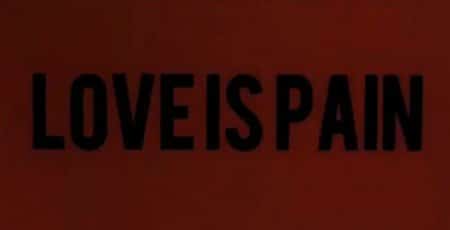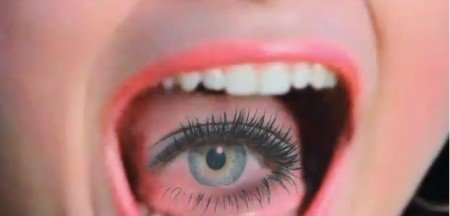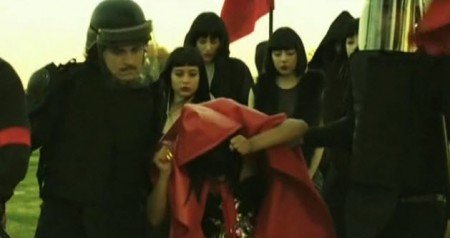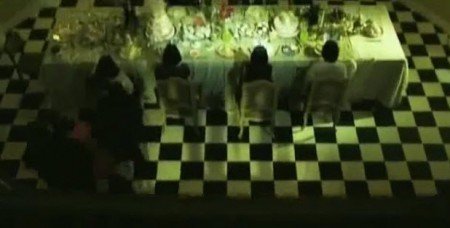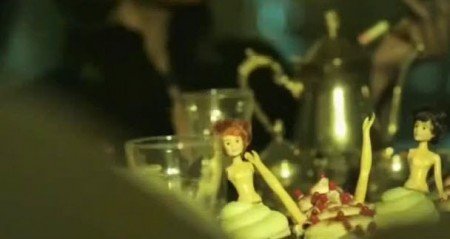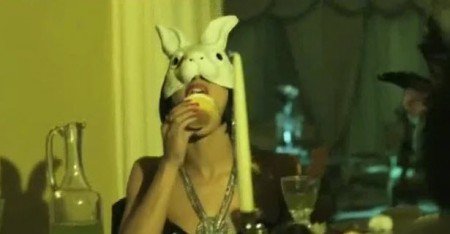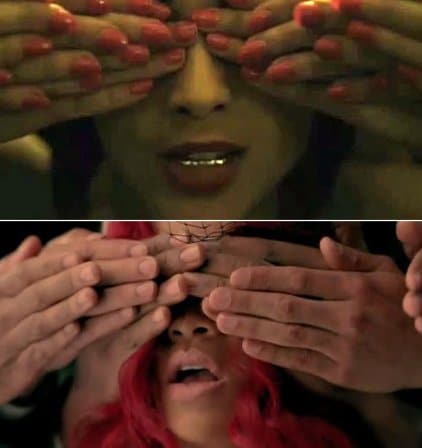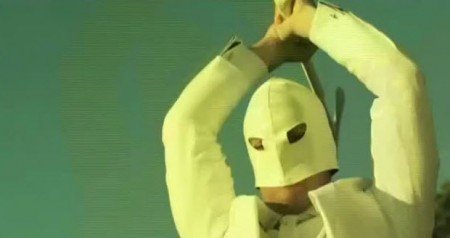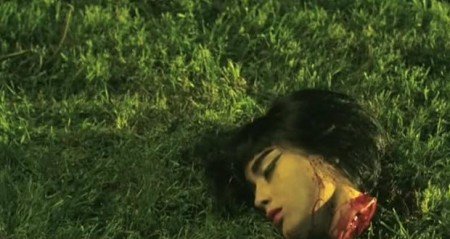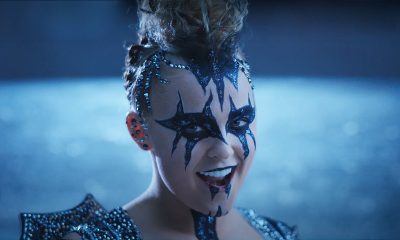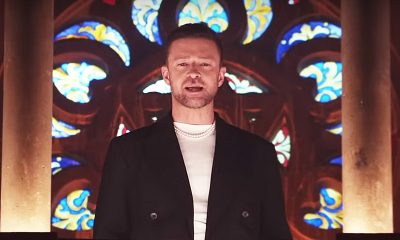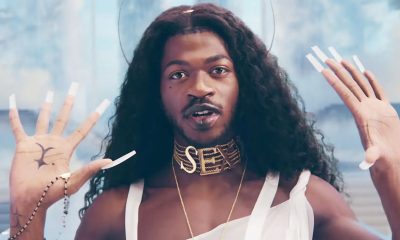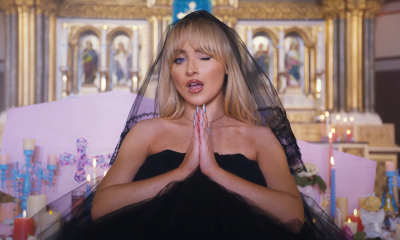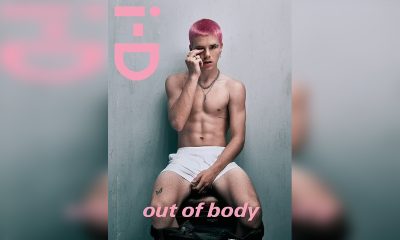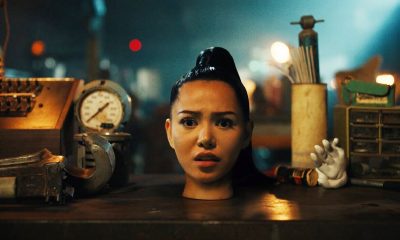Music Business
Natalia Kills’ “Zombie” and “Wonderland”: Dedicated to Illuminati Mind Control

In the last few years, the pop music scene has incorporated gradually increasing doses of Illuminati mind control symbolism in its music videos. Newcomer pop singer Natalia Kills is definitely another step in this direction. While other pop stars blend subversive symbolism with other themes and subjects matters, Natalia’s videos appear to solely focus on mind control imagery. We’ll look at Natalia Kills’ career videos “Zombie” and “Wonderland”.
Natalia Kills is an English singer-song writer who signed with will.i.am and Interscope Records. Not unlike other female pop stars, Natalia began working in the entertainment industry at a young age (7). In 2005, Natalia Kills was a rapper known as Verbalicious and released a single entitled Don’t Play Nice, a playful party-rap song with Natalia sporting a radically different style and image.
After being taken under the wing of Cherrytree Records, an Interscope imprint, her name changed to Natalia Kills, her musical style switched to electro-pop and her overall image became a lot darker, fashion-conscious and twisted. In other words, she morphed into an Illuminati pop star.
Although not at the same level of worldwide popularity, Natalia Kills is often compared to Lady Gaga. Though her fans probably don’t appreciate the comparison, there are indeed several similarities between the singers: They both began singing at a young age; they both signed with Interscope’s Cherry Tree Records; they both underwent an extreme metamorphosis after being signed becoming edgy and hyper-sexualized; both changed their artist names after signing with Cherry Tree; both worked with the same producers (count the shout outs to Cherry Cherry Boom Boom in their songs); and most significantly, both incorporate heavy occult and mind control imagery in their videos.
There is a slight difference in Natalia Kills’ world, however: believe it or not, the mind control imagery and symbolism is even more blatant. Her songs and videos can actually be read as a diary of a Monarch programming victim (for a detailed explanation of this term, please read the article Origins and Techniques of Monarch Mind Control).
Natalia’s world is dominated by the concepts of torture, oppression, sadistic handlers, violence, sexual abuse and drugs. In all three of her videos, Natalia is degraded and abused, always combining sex and violence (our two most primal instincts).
Natalia’s first single, Mirrors, flaunts all of the seemingly obligatory references to mind control through symbolism (fractured mirrors, caged heart, etc.) and BDSM (Bondage/Domination/Sadism/Masochism). However, it is her two subsequent singles, Zombie and Wonderland, that clearly associate Natalia with Monarch mind control (to those who understand Monarch symbolism, the names of the songs alone say it all). Let’s look at the symbolism of these two videos.
Zombie
Without the video, Zombie appears to be a song about being in love with a cold-hearted guy who does not return phone calls. Aw. The setting of the video, however, definitely does not match this interpretation: Natalia is strapped to a table in what looks like a cold laboratory (mind-control facility?), and is controlled by an unseen person who is sadistically torturing her … and with whom Natalia is in love.
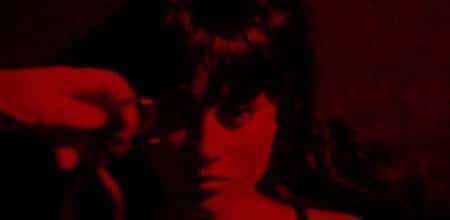
In the context of the video, it becomes clear that the lyrics are actually about the sick, twisted, forcibly generated infatuation felt by a slave towards her handler. The beginning of the song describe the relationship:
I’m in love with a zombie
Can’t keep his hands off me
I think he’s looking at me
But he’s looking right through meYou think you’re so cool boy
Blood rushing through my veins now
Do you want me for my body
Do you want me for my brain, brain, brain, brain
Can’t keep his hands off me is one of the references to the abusive nature of the sexual “relationship” between Natalia and her handler. The last two lines of this verse are actually the most chilling: Do you want me for my body/ Do you want me for my brain, brain, brain, brain. The handler, aka the zombie, actually wants her brain, meaning the ultimate goal is mind control. He is abusing her to cause trauma and dissociation, which psychologically creates alter personas, the ultimate goal of Monarch programming. The video makes it clear: We are definitely not talking about a pretty-boy player who does not return calls, but a sadistic, Josef Mengele-type figure. So the Zombie is a mind control handler and the song’s chorus is “I’m in love with a Zombie” … disturbingly wrong yet most listeners will never get the song’s true meaning (zombies are so cool, right?).
After witnessing this cold, robotic single, I had the feeling that Natalia’s subsequent videos would be nothing less than symbolism-fests, since new singers always push the blatantness a step further … guess I was right.
Wonderland
To those who know are familiar with mind control symbolism, the name of this single, Wonderland, is a dead giveaway that there will be more here than just music. Alice in Wonderland is the primary movie associated with Monarch programming, as it is an actual programming tool. Using associations in the movie, slaves are indeed encouraged to “Walk through the looking glass” – meaning they dissociate from reality. In the fairy tale, Alice enters a fantasy world where everything is magical, inverted and unstable, a world similar to the slave’s internal world, where everything can be modified by the handler.
Knowing this, the otherwise seemingly random and incomprehensible story of the video Wonderland starts making sense. If you have read other articles on this site, you can probably recognize and identify the meaning of these symbols, since they are found in countless other music videos. The constant use of the same set of symbols across popular culture is not a coincidence: A story is being told in veiled terms for those who have “eyes to see”.
The song itself speaks of disillusionment towards the magical world of fairy tales. This feeling is particularly true for mind-control victims, who are programmed using fairy tales by their handlers. The enchanting world of these stories is of course in sharp contrast to the horrid day-to-day reality of these victims, but they are programmed to recognize parallels between the stories and their disassociated inner-psyche. This is reflected in the first verse of Wonderland:
I’m not Snow White, but I’m lost inside this forest
I’m not Red Riding Hood, but I think the wolves have got me
Don’t want those stilettos, I’m not, not Cinderella
I don’t need a knight, so baby, take off all your armor
This verse describes the mental confusion (lost inside this forest), the control by handlers (I think the wolves have got me) and even the sexual abuse (Don’t want those stilettos) inflicted on MK victims by the very same people who tell them the fairy tales. Despite these references, one could argue that the song itself can be interpreted as wanting “true love” and not “make believe”. Well, as always we can turn to the video for clarification… and in this video is is pretty clear, there is no love involved.
Filled with semi-subliminal flashes of powerful words and gruesome images, the video makes no allusions to a love interest, but plenty of references to mind control. Some of the phrases flashed on screen are actual mantras hammered into the heads of mind-control victims to confuse and traumatize them.
The video begins with a kind of ritualistic procession, where Natalia – dressed in red, the occult color of sacrifice – is forcibly lead somewhere by men in riot gear. The scene is peppered with short flashes showing the police beating people during a riot – placing the video in the context of an oppressive police state.
Natalia is followed by women dressed in black and holding a red flag, alluding to the ritualistic nature of this procession. She is taken to a secured building where she is forced to attend a highly symbolic dinner.
The dinner table itself is replete with symbols alluding to mind control. Some examples:
In another scene, Natalia is shown being blinded by the hands of several unseen people. This symbolic image is also used in other mind-controlled themed videos to represent the handlers blinding and controlling the slave.
The dinner is held under the supervision of police in riot gear. As seen in previous articles, there is a conscious effort to “normalize” the presence of these symbols of a police state in popular culture, hence their presence in numerous music videos and musical performances (see the article The Transhumanist and Police State Agenda in Pop Music).
After “popping her pills”, Natalia becomes a little rowdy, prompting the cops to raid the place and savagely beat her up. She is then taken outside, where her sacrifice will take place.
In the beginning of the video, Natalia was shown dressed in red (the color of sacrifice) and followed by women dressed in black (death and morning). Her ritual sacrifice was planned from the start. In mind -ontrol terms, the process caused Natalia to dissociate, go to Wonderland and “lose her head”. The transformation, which occurred on the checkerboard patterned floor, caused Natalia to lose control of her mind and of her actions. Through the trauma of oppression, drugs and physical abuse, Natalia has dissociated and gone to Wonderland, the only refuge to her trauma.
As the axe goes down, the screen rips and the word “Wonderland” appears in red, associating the head chopping with the true meaning of the word “Wonderland” in this song. The video ends with an inspiring image, meant to uplift a generation of young minds:
In Conclusion
As pop star veterans lose their edge and their “magic”, newcomers sweep onto the scene to enchant pop fans all over again. Record labels and the Illuminati record industry as a whole are aware of the nature of the business, which is fueled by young people constantly seeking the next cheap thrill and the hottest trend. In a matter of months, fans can go from “OMG she’s the best I’ll luv her forevz” to “Yawn, lame”. So, in case people ever get tired of Lady Gaga, her record label is already grooming the next generation to serve up the Illuminati symbolism.
As the public becomes increasingly desensitized to the Agenda, videos keep marching towards more graphic and uncensored portrayals of mind control, which is arguably the most sadistic and evil practice in the world. Natalia’s videos can be read as a diary of a Monarch victim, where she describes a world dominated by oppression, torture, violence, sexual abuse and drugs. The horrific world of Monarch slaves is exposed as Natalia is abused and degraded by unseen forces, but the whole thing is presented as cool and fashionable.
Natalia does not currently enjoy the level of exposure of Rihanna or Lady Gaga. She however has everything it takes to become an industry favorite – a perfect candidate to lead a nation of Zombies to Wonderland.
- Trust the Economist: It Must Be True
- The Complete Combo
- Forget Chrome—Google Starts Tracking All Your Devices In 8 Weeks
- Jay-Z's "son" claims he refused a paternity test because his mom was 16 when she got pregnant with him.
- Sabrina Carpenter wants to be like satan.
- I feel like picking on Sabrina Carpenter right now.
- Gay couple convicted of sexually assaulting adopted children get 100 years.
Get an e-mail notification as soon as a new article is published on The Vigilant Citizen.
-

 Latest News3 months ago
Latest News3 months agoThe Controlled Demolition of Diddy
-

 Pics of the Month2 months ago
Pics of the Month2 months agoSymbolic Pics of the Month 10/24
-
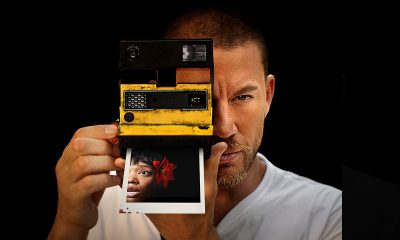
 Movies and TV2 months ago
Movies and TV2 months agoAn In-Depth Look at the Hidden Meaning and Symbolism in “Blink Twice”
-

 Movies and TV4 weeks ago
Movies and TV4 weeks agoAdrenochrome and Ritual Humiliation: The True Meaning of the Movie “The Substance”
-

 Latest News2 months ago
Latest News2 months agoKamala’s Campaign Was Objectively the Worst in Recent History
-

 Latest News1 month ago
Latest News1 month agoWas the Jake Paul vs Mike Tyson Fight a Humiliation Ritual?
-
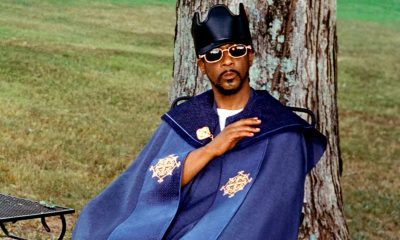
 Pics of the Month3 weeks ago
Pics of the Month3 weeks agoSymbolic Pics of the Month 12/24
-

 Latest News2 months ago
Latest News2 months agoAn “Urban Opera” in Toulouse Using Massive Machines is Denounced as a Satanic Ritual
